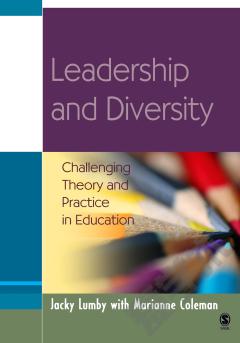Leadership and Diversity —— Challenging Theory and Practice in Education
----- 领导与多样性
As society becomes increasingly diverse, there is significant international awareness in education about how this impacts on leaders and leadership. For decades the emphasis has been placed on increasing the number of leaders with specific attributes, such as women or those from ethnic minorities, to encourage a true representation of society. This far-reaching book takes a wider view, challenging the reader to recognise the importance of diversity issues and to embed diversity as central within leadership theory and practice. Drawing on their own extensive research the authors establish a clear understanding of what diversity means and use this to develop a distinct approach to conceiving leadership, preparing leaders and acting as leaders. They explain how diversity should be a holistic issue which touches every aspect of leadership and is vital to ensuring effective and appropriate leadership for education in pluralist societies. Through an analysis of national, regional and organisational policies and practice in a number of countries, the book explores the history of approaches to addressing inequities in access to leadership positions and the experience of leadership, from equal opportunities, to diversity and inclusion, to capabilities approaches. It delves into the experience of being an 'outsider' in leadership, uncovering what causes people to be perceived or to perceive themselves as an outsider. Examples of being a woman or being from a minority ethnic group help provide valuable vignettes of how a particular characteristic can lead to differential treatment and experience.
{{comment.content}}








 京公网安备 11010802027623号
京公网安备 11010802027623号